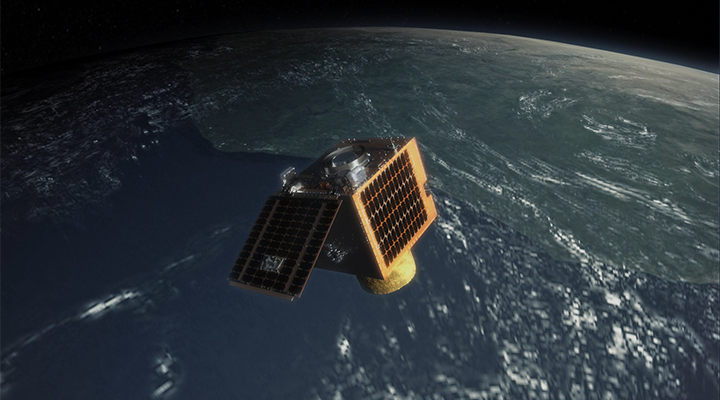
An electronics teacher had an idea and proposed it to his students at a technical school in the city of Mar del Plata, province of Buenos Aires, it was an enormous but motivating and enriching challenge: developing a picosatellite, that is, a small cubic satellite. no more than 10 centimeters. per side and less than 1 kilogram in weight.
His idea was not only successful but it was put into practice and will be launched into space by SpaceX these days. Yes, although it seems like a novel it is not, taking advantage of the project the Innova Space company was created, which reached an agreement with Elon Musk's company and the small satellite will be launched on 01/13/2022 from Cape Canaveral. The artifact has a name, the students named it San Martín to the space in allusion to the greatest hero of Argentina.
The project had some slogans such as size, components, and functionality, the idea was to develop it at low cost and also make it cheap to send it to an orbit around the Earth, that is why they decided on this type whose mass does not exceed ½ kilogram of weight. The small satellite was entirely developed in the country including the processor, the chassis, and the program.
This development is a pioneer in our subcontinent and of course in Argentina and its objective is to provide communications coverage to remote areas of our country that represent almost 70% of the territory.
The idea and its development won the Innovation award granted by the Ministry of Education of the Nation and agreed to a non-reimbursable loan granted by the Ministry of Productive Development for a significant sum of money that paid them a good part of the investment necessary to get there. to the current state.
On Thursday, January 13 at 12:00 local time, the MDQubeSAT-1 will be launched from SpaceX and the event will be broadcast live on YouTube.

Un profesor de electrónica tuvo una idea y se la propuso a sus alumnos de una escuela técnica de la ciudad de Mar del Plata, provincia de Buenos Aires, era un desafío enorme pero motivador y enriquecedor: desarrollar un picosatélite, es decir un pequeño satélite cúbico de no más de 10 centímetros. por lado y menos de 1 kilogramo de peso.
Su idea no solamente tuvo éxito, sino que fue llevada a la práctica y por estos días será lanzado al espacio por SpaceX. Si, aunque parezca una novela no lo es, aprovechando el proyecto se creo la empresa Innova Space que logró un acuerdo con la compañía de Elon Musk y el pequeño satélite será lanzado el día 13/01/2022 desde Cabo Cañaveral. El artefacto tiene nombre, los alumnos lo bautizaron San Martín al espacio en alusión al mayor prócer de la Argentina.
El proyecto tuvo algunas consignas como por ejemplo el tamaño, los componentes y la funcionalidad, la idea fue desarrollarlo a bajo costo y que también fuera barato enviarlo a una órbita alrededor de la Tierra, por eso se decidieron por este tipo cuya masa no supera el ½ kilogramo de peso. El pequeño satélite fue íntegramente desarrollado en el país incluyendo el procesador, el chasis y el programa.
Este desarrollo es pionero en nuestro subcontinente y por supuesto en la Argentina y su objetivo es el de dar cobertura de comunicaciones a zonas remotas de nuestro país que representan casi el 70% del territorio.
La idea y su desarrollo ganaron el premio Innovación otorgado por el ministerio de Educación de la Nación y accedió a un préstamo no reembolsable otorgado por el ministerio de Desarrollo Productivo por una importante suma de dinero que les solventó una buena parte de la inversión necesaria para llegar al estado actual.
El jueves 13 de enero a las 12:00 local se lanzará el MDQubeSAT-1 desde SpaceX y el evento será trasmitido en vivo por Youtube.
Las fotografías son de mi propiedad excepto las que menciono la fuente.
The photographs are my property except those mentioned by the source.
Héctor Gugliermo
@hosgug
are YOU the teacher?
You should realize that hive users on starlink could create a web 4.0 experience with hivepower = internet bandwidth
I am not the teacher, just a fan. The starlink network is a fabulous project that makes it possible to bring more people from far away places to the unique experience of high-speed internet.
That's quite a great project the teacher embarked on. I'm quite glad that he chose to involve his students in the project. I'll be looking out for the video of the lunch on YouTube.